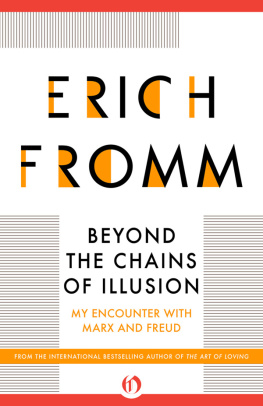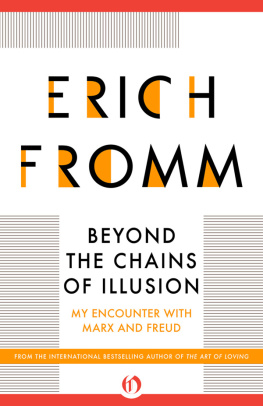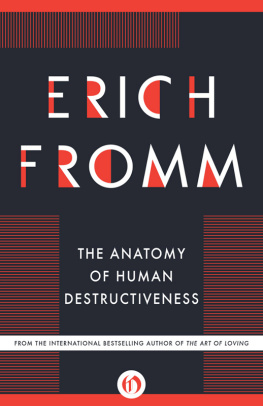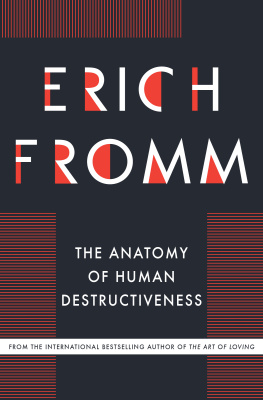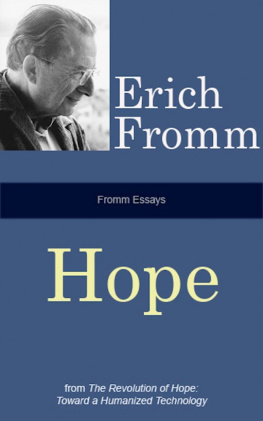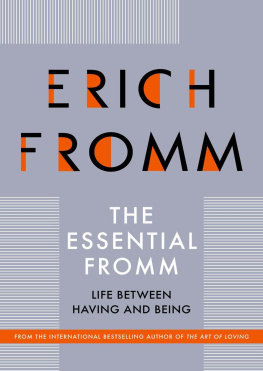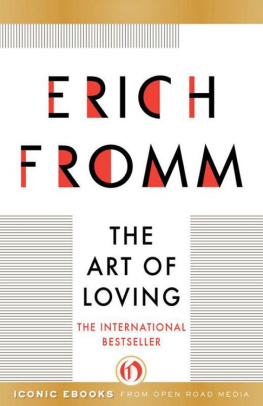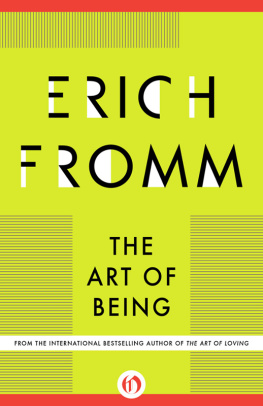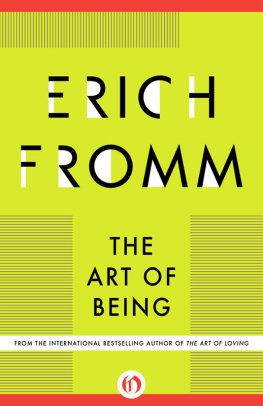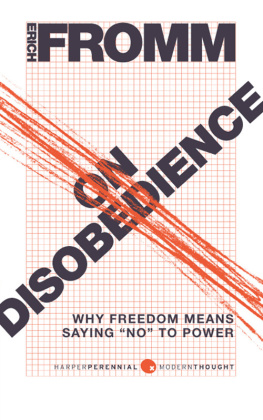Introduction: The Great Promise,
Its Failure, and New Alternatives
The End of an Illusion
The Great Promise of Unlimited Progressthe promise of domination of nature, of material abundance, of the greatest happiness for the greatest number, and of unimpeded personal freedomhas sustained the hopes and faith of the generations since the beginning of the industrial age. To be sure, our civilization began when the human race started taking active control of nature; but that control remained limited until the advent of the industrial age. With industrial progress, from the substitution of mechanical and then nuclear energy for animal and human energy to the substitution of the computer for the human mind, we could feel that we were on our way to unlimited production and, hence, unlimited consumption; that technique made us omnipotent; that science made us omniscient. We were on our way to becoming gods, supreme beings who could create a second world, using the natural world only as building blocks for our new creation.
Men and, increasingly, women experienced a new sense of freedom; they became masters of their own lives: feudal chains had been broken and one could do what one wished, free of every shackle. Or so people felt. And even though this was true only for the upper and middle classes, their achievement could lead others to the faith that eventually the new freedom could be extended to all members of society, provided industrialization kept up its pace. Socialism and communism quickly changed from a movement whose aim was a new society and a new man into one whose ideal was a bourgeois life for all, the universalized bourgeois as the men and women of the future. The achievement of wealth and comfort for all was supposed to result in unrestricted happiness for all. The trinity of unlimited production, absolute freedom, and unrestricted happiness formed the nucleus of a new religion, Progress, and a new Earthly City of Progress was to replace the City of God. It is not at all astonishing that this new religion provided its believers with energy, vitality, and hope.
The grandeur of the Great Promise, the marvelous material and intellectual achievements of the industrial age, must be visualized in order to understand the trauma that realization of its failure is producing today. For the industrial age has indeed failed to fulfill its Great Promise, and ever growing numbers of people are becoming aware that:
Unrestricted satisfaction of all desires is not conducive to well-being, nor is it the way to happiness or even to maximum pleasure.
The dream of being independent masters of our lives ended when we began awakening to the fact that we have all become cogs in the bureaucratic machine, with our thoughts, feelings, and tastes manipulated by government and industry and the mass communications that they control.
Economic progress has remained restricted to the rich nations, and the gap between rich and poor nations has ever widened.
Technical progress itself has created ecological dangers and the dangers of nuclear war, either or both of which may put an end to all civilization and possibly to all life.
When he came to Oslo to accept the Nobel Prize for Peace (1952), Albert Schweitzer challenged the world "to dare to face the situation.... Man has become a superman.... But the superman with the superhuman power has not risen to the level of superhuman reason. To the degree to which his power grows he becomes more and more a poor man.... It must shake up our conscience that we become all the more inhuman the more we grow into supermen."
Why Did the Great Promise Fail?
The failure of the Great Promise, aside from industrialism's essential economic contradictions, was built into the industrial system by its two main psychological premises: (1) that the aim of life is happiness, that is, maximum pleasure, defined as the satisfaction of any desire or subjective need a person may feel (radical hedonism); (2) that egotism, selfishness, and greed, as the system needs to generate them in order to function, lead to harmony and peace.
It is well known that the rich throughout history practiced radical hedonism. Those of unlimited means, such as the elite of Rome, of Italian cities of the Renaissance, and of England and France in the eighteenth and nineteenth centuries, tried to find a meaning to life in unlimited pleasure. But while maximum pleasure in the sense of radical hedonism was the practice of certain groups at certain times, with but a single exception prior to the seventeenth century, it was never the theory of well-being expressed by the great Masters of Living in China, India, the Near East, and Europe.
The one exception is the Greek philosopher Aristippus , a pupil of Socrates (first half of the fourth century B.C.), who taught that to experience an optimum of bodily pleasure is the goal of life and that happiness is the sum total of pleasures enjoyed. The little we know of his philosophy we owe to Diogenes Laertius , but it is enough to reveal Aristippus as the only real hedonist, for whom the existence of a desire is the basis for the right to satisfy it and thus to realize the goal of life: Pleasure
Epicurus can hardly be regarded as representative of Aristippus ' kind of hedonism. While for Epicurus pure pleasure is the highest goal, for him this pleasure meant absence of pain ( aponia ) and stillness of the soul ( ataraxia ). According to Epicurus, pleasure as satisfaction of a desire cannot be the aim of life, because such pleasure is necessarily followed by unpleasure and thus keeps humanity away from its real goal of absence of pain. (Epicurus' theory resembles Freud's in many ways.) Nevertheless, it seems that Epicurus represented a certain kind of subjectivism contrary to Aristotle's position, as far as the contradictory reports on Epicurus' statement permit a definite interpretation.
None of the other great Masters taught that the factual existence of a desire constituted an ethical norm. They were concerned with humankind's optimal well-being ( viverebene ). The essential element in their thinking is the distinction between those needs (desires) that are only subjectively felt and whose satisfaction leads to momentary pleasure, and those needs that are rooted in human nature and whose realization is conducive to human growth and produces eudaimonia , i.e., "well-being." In other words, they were concerned with the distinction between purely subjectively felt needs and objectively valid needspart of the former being harmful to human growth and the latter being in accordance with the requirements of human nature.
The theory that the aim of life is the fulfillment of every human desire was clearly voiced, for the first time since Aristippus , by philosophers in the seventeenth and eighteenth centuries. It was a concept that would easily arise when profit ceased to mean profit for the soul (as it does in the Bible and, even later, in Spinoza), but came to mean material, monetary profit, in the period when the middle class threw away not only its political shackles but also all bonds of love and solidarity and believed that being only for oneself meant being more rather than less oneself. For Hobbes happiness is the continuous progress from one greed ( cupiditas ) to another; La Mettrie even recommends drugs as giving at least the illusion of happiness; for de Sade the satisfaction of cruel impulses is legitimate, precisely because they exist and crave satisfaction. These were thinkers who lived in the age of the bourgeois class's final victory. What had been the un-philosophical practices of aristocrats became the practice and theory of the bourgeoisie.
Many ethical theories have been developed since the eighteenth centurysome were more respectable forms of hedonism, such as Utilitarianism; others were strictly antihedonistic systems, such as those of Kant, Marx, Thoreau, and Schweitzer. Yet the present era, by and large since the end of the First World War, has returned to the practice and theory of radical hedonism. The concept of unlimited pleasure forms a strange contradiction to the ideal of disciplined work, similar to the contradiction between the acceptance of an obsessional work ethic and the ideal of complete laziness during the rest of the day and during vacations. The endless assembly line belt and the bureaucratic routine on the one hand, and television, the automobile, and sex on the other, make the contradictory combination possible. Obsessional work alone would drive people just as crazy as would complete laziness. With the combination, they can live. Besides, both contradictory attitudes correspond to an economic necessity: twentieth-century capitalism is based on maximal consumption of the goods and services produced as well as on routinized teamwork.
Next page


